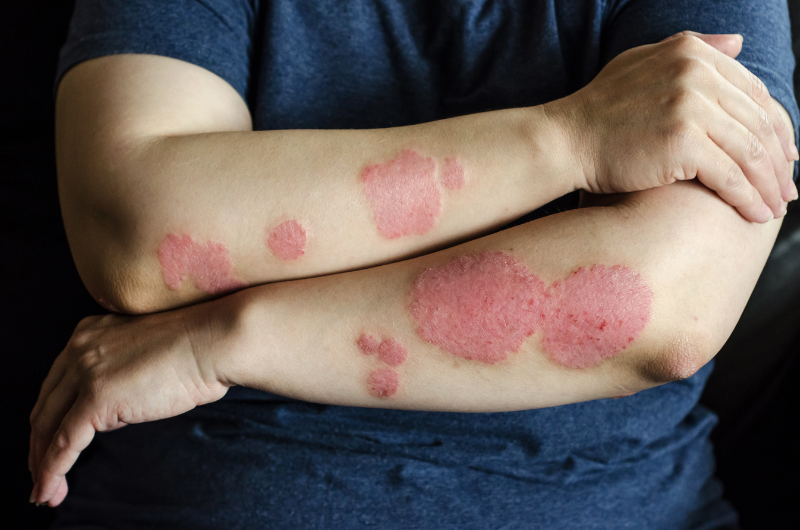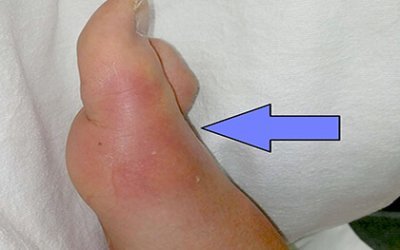How to Identify and Treat Skin Allergies Naturally

Skin allergies are a common issue that affects many individuals, leading to discomfort and irritation. These allergic reactions can be triggered by various substances and environmental factors. Identifying the causes and adopting natural treatments can significantly alleviate symptoms and promote healthier skin. This article delves into the identification of skin allergies and provides natural remedies and herbs for treatment, avoiding synthetic drugs.
1. What Are Skin Allergies?
1.1. Definition and Types
Skin allergies occur when the immune system reacts abnormally to certain substances. Common types of skin allergies include:
- Contact Dermatitis: Reaction to direct contact with allergens like certain metals, plants, or cosmetics.
- Eczema (Atopic Dermatitis): A chronic condition characterized by dry, itchy skin.
- Hives (Urticaria): Raised, red, itchy welts that appear suddenly.
1.2. How Skin Allergies Develop
Skin allergies develop when the immune system mistakenly identifies a harmless substance as a threat, releasing chemicals like histamines that cause symptoms. Common allergens include pollen, pet dander, certain foods, and chemicals in soaps or lotions.
2. Identifying Skin Allergies
2.1. Common Symptoms
- Redness and Itching: A common initial reaction to allergens.
- Swelling and Blistering: More severe reactions can cause these symptoms.
- Dry, Flaky Skin: Often seen in chronic conditions like eczema.
2.2. How to Differentiate from Other Skin Conditions
- Psoriasis: Unlike skin allergies, psoriasis patches are often thicker and more scaly.
- Fungal Infections: Typically have a defined border and may be accompanied by other symptoms like toenail fungus.
- Symptom Diary: Keep a diary to track potential triggers and reactions, helping to identify patterns and allergens.
3. Natural Remedies for Skin Allergies
3.1. Herbal Treatments
Aloe Vera: Known for its soothing and anti-inflammatory properties.
- How to use: Apply fresh aloe vera gel directly to the affected area.
- Research Link: NCBI
Calendula: This herb has healing properties that help soothe irritated skin.
- How to use: Apply calendula cream or ointment to the affected area.
- Research Link: NIH
Chamomile: Reduces inflammation and itching.
- How to use: Apply chamomile tea compresses to the skin.
- Research Link: NCBI
3.2. Home Remedies
Oatmeal Baths: Relieve itching and inflammation.
- How to use: Add colloidal oatmeal to a lukewarm bath and soak for 15-20 minutes.
- Research Link: NIH
Coconut Oil: Moisturizes and reduces inflammation.
- How to use: Apply virgin coconut oil to affected areas several times a day.
- Research Link: NCBI
Honey: Has antibacterial and anti-inflammatory properties.
- How to use: Apply raw honey to affected areas and leave for 20 minutes before rinsing.
3.3. Dietary Adjustments
Anti-Inflammatory Foods: Include foods rich in omega-3 fatty acids, antioxidants, and vitamins.
- Examples: Salmon, leafy greens, berries, and nuts.
- Research Link: NCBI
Avoid Trigger Foods: Identify and eliminate foods that may cause or worsen allergies.
- Common triggers: Dairy, gluten, and processed foods.
4. Lifestyle Changes to Manage Skin Allergies
4.1. Environmental Control
- Reduce Exposure to Allergens: Keep the home clean, use air purifiers, and avoid pets if necessary.
- Wear Natural Fabrics: Choose cotton or bamboo clothing to reduce irritation.
4.2. Stress Management
- Meditation and Yoga: Practice regularly to reduce stress, which can worsen allergic reactions.
- Adequate Sleep: Ensure enough restful sleep to support the immune system.
5. Preventing Skin Allergies
5.1. Patch Testing New Products
- Test new skincare products on a small skin area before full application.
5.2. Natural Skincare Routine
- Gentle Cleansing: Use mild, fragrance-free cleansers.
- Moisturizing: Regularly apply natural moisturizers like shea butter or jojoba oil.
Conclusion: Embracing Natural Solutions for Skin Allergies
Identifying skin allergies and treating them with natural remedies can significantly improve skin health and quality of life. Embrace a holistic approach to skincare, incorporating herbal treatments and lifestyle changes for long-term relief.
References
- H.K.Bakhru (1992) Herbs That Heal: Natural Remedies for Good Health. Orient Paperbacks. Delhi, India.
- T.V.Sairam (1999) Home Remedies Vol-II: A Handbook of Herbal Cures for Common Ailments. Penguin Books India.
Dos
Identify Triggers
- Keep a symptom diary to track potential allergens and reactions.
- Conduct patch tests before using new skincare products or cosmetics.
Maintain a Healthy Diet
- Eat anti-inflammatory foods such as leafy greens, berries, and fatty fish.
- Stay hydrated by drinking plenty of water.
Use Natural Skincare Products
- Opt for products with natural ingredients like aloe vera, chamomile, and calendula.
- Choose fragrance-free and hypoallergenic products to reduce irritation.
Practice Good Hygiene
- Regularly wash your hands and face to remove potential allergens.
- Clean your living environment to minimize exposure to dust mites, pet dander, and other allergens.
Moisturize Regularly
- Apply natural moisturizers like coconut oil, shea butter, or jojoba oil to keep your skin hydrated and prevent dryness.
Wear Comfortable Clothing
- Choose loose-fitting clothes made from natural fibers like cotton to reduce skin irritation.
Manage Stress
- Engage in stress-reducing activities such as meditation, yoga, or deep breathing exercises to help prevent flare-ups.
Consult a Healthcare Professional
- Seek advice from a dermatologist or naturopath to identify your specific allergens and get tailored treatment recommendations.
Don’ts
Avoid Harsh Chemicals
- Steer clear of skincare products containing synthetic fragrances, parabens, and sulfates.
- Don’t use harsh cleaning products that can irritate the skin.
Limit Exposure to Known Allergens
- Avoid foods, plants, or materials that you know trigger your skin allergies.
- Don’t spend time in environments with high levels of pollution or allergens.
Don’t Scratch or Rub Affected Areas
- Scratching can worsen irritation and lead to infections.
- Use cool compresses or natural remedies like aloe vera gel to soothe itching.
Don’t Ignore Symptoms
- Address allergic reactions promptly to prevent them from worsening.
- If symptoms persist or become severe, consult a healthcare professional.
Avoid Synthetic Fabrics
- Synthetic fabrics like polyester can irritate the skin; opt for natural materials instead.
Limit Sun Exposure
- Excessive sun exposure can aggravate skin allergies and cause further irritation.
- Use natural sunscreens and wear protective clothing when outdoors.
Avoid Excessive Use of Topical Steroids
- Prolonged use of topical steroids can cause skin thinning and other side effects.
- Stick to natural treatments and consult a healthcare provider for alternative solutions.
Send Us A Message
FAQs
Identifying the cause of a skin allergy involves:
- Keeping a symptom diary to track reactions and potential triggers.
- Conducting patch tests with new products to see if they cause a reaction.
- Consulting with a dermatologist for allergy testing.
Natural remedies include:
- Aloe Vera: Apply fresh gel to soothe inflammation.
- Calendula: Use calendula cream or ointment for its healing properties.
- Chamomile: Apply chamomile tea compresses to reduce itching and inflammation.
- Oatmeal Baths: Soak in a bath with colloidal oatmeal to relieve itching.
- Coconut Oil: Use virgin coconut oil to moisturize and reduce inflammation.
- Honey: Apply raw honey to affected areas for its antibacterial and anti-inflammatory benefits.
Incorporate anti-inflammatory foods into your diet, such as:
- Leafy greens
- Berries
- Fatty fish rich in omega-3s
- Nuts and seeds Avoid foods that might trigger allergies, like dairy, gluten, and processed foods.
Preventive measures include:
- Avoiding known allergens.
- Using hypoallergenic and fragrance-free skincare products.
- Wearing natural fabrics like cotton.
- Keeping your home clean to minimize dust and pet dander.
- Performing patch tests before using new products.














